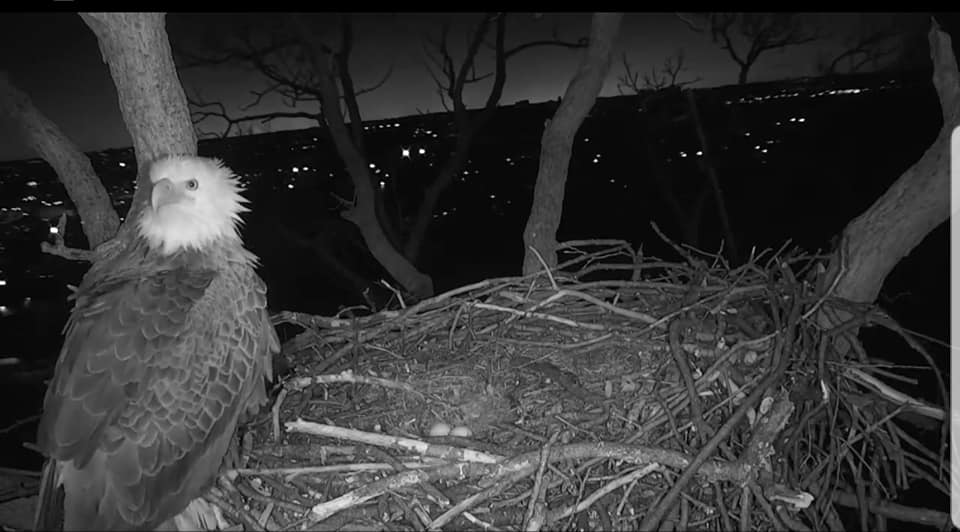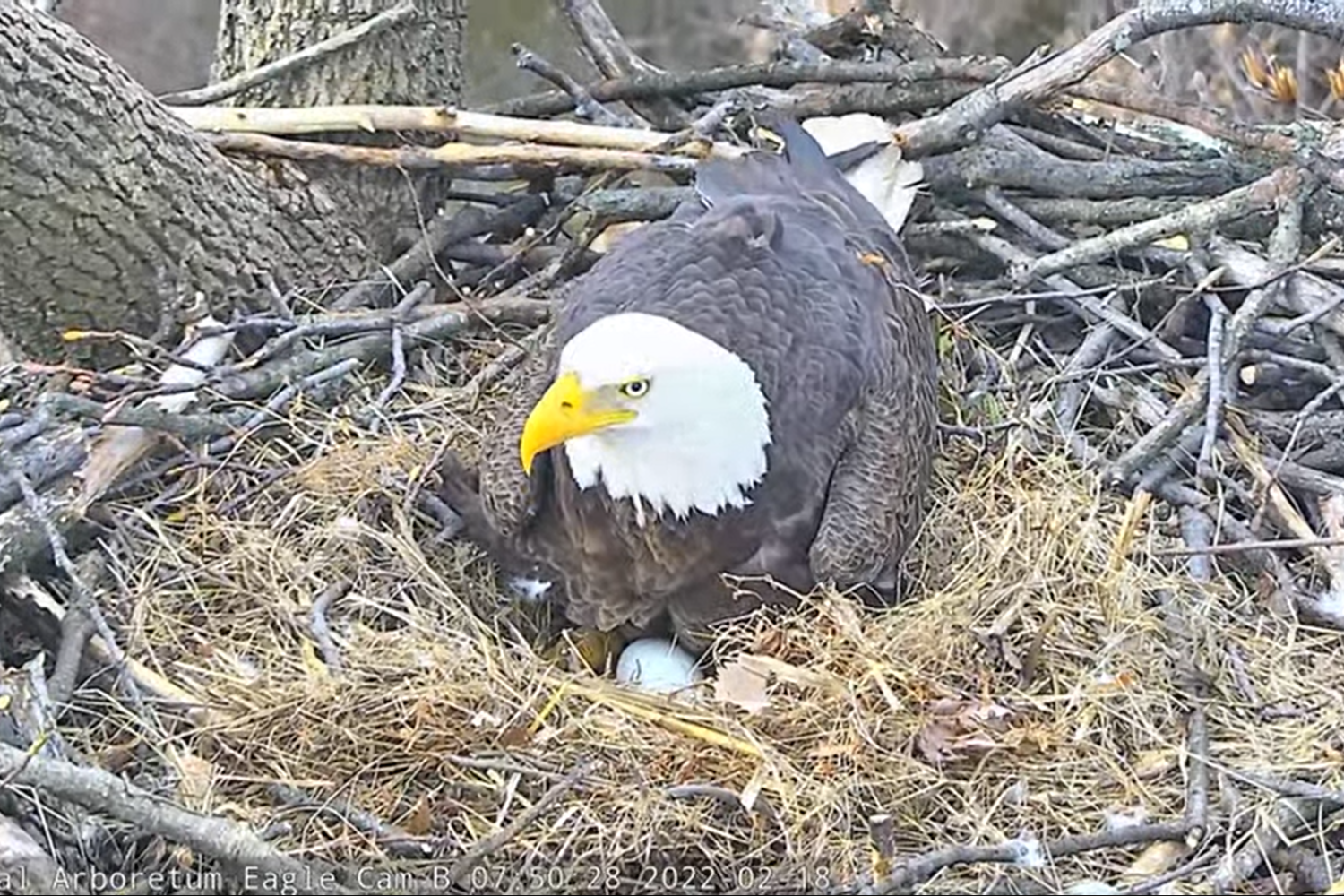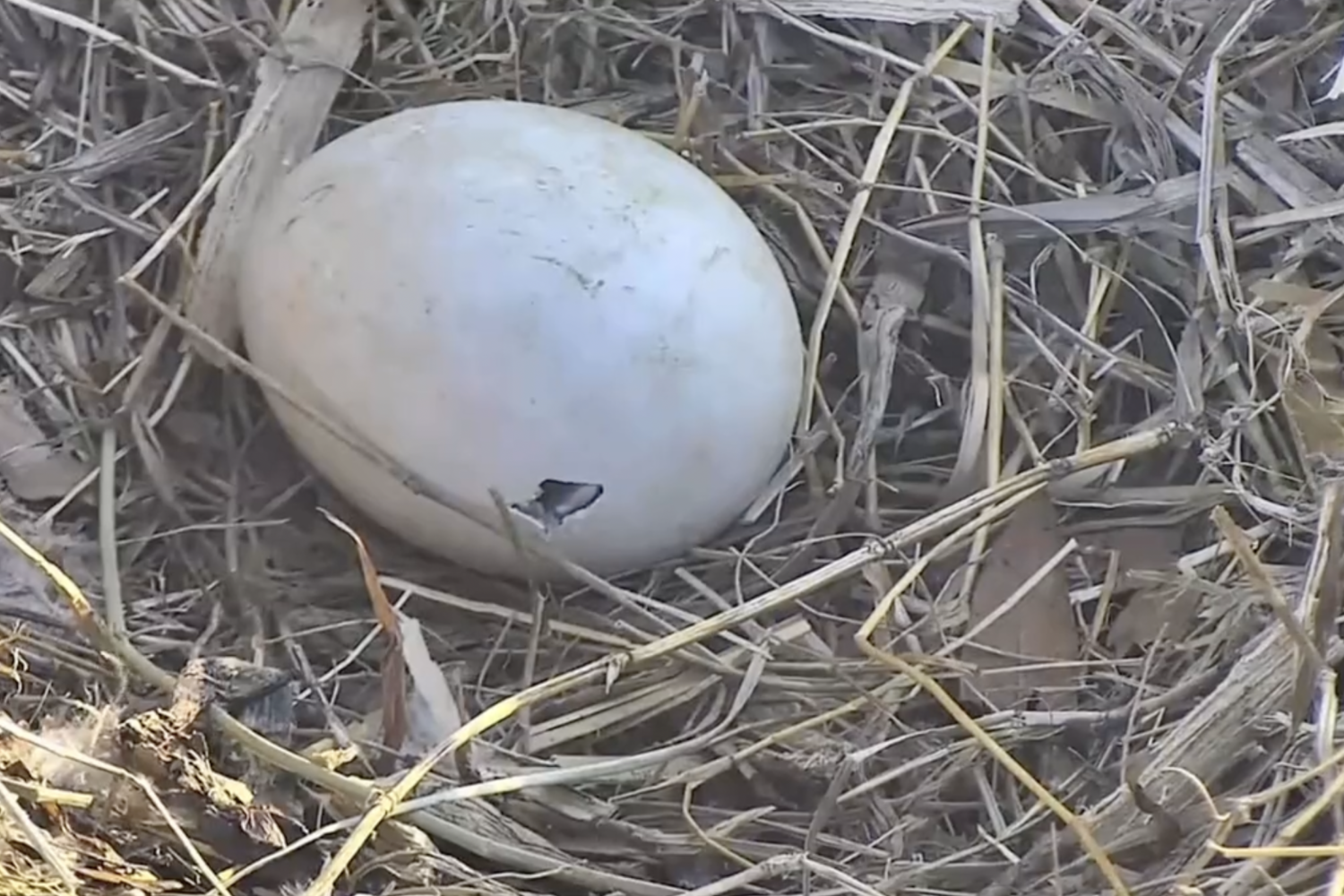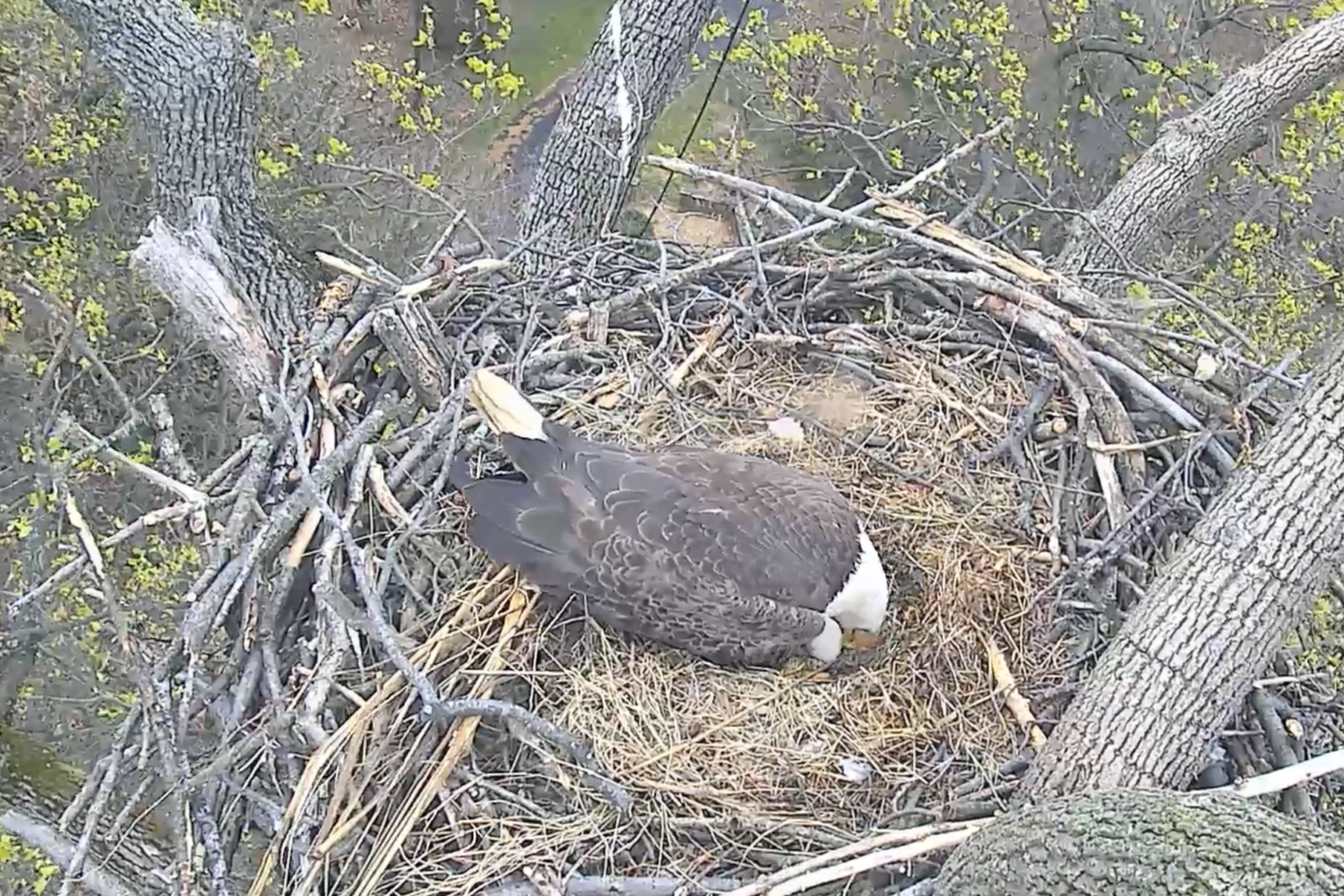Yesterday, Washingtonians went to work with a heavy heart. Two eagle eggs caught in the middle of a torrid love affair have been declared nonviable. Meaning no new eagle babies this year for Liberty, the mother eagle who has recently inspired quite a following.
This year, the disappearance of Justice, Liberty’s mate of 14 years, and the subsequent appearance of a first and then a second suitor may have shaken up her routine and driven her from the nest. Her eggs were left alone for several hours in the cold this week.
The eggs have no shot at survival at this point, says Tommy Lawrence, the managing director at Earth Conservation Corps, the group protecting area bald eagles. The organization’s livestream of Liberty’s nest has inspired a large following on Facebook, where ECC camera operators are heralded for tight-framed zooms and action shots (and are just another team that was snubbed at Sunday’s Oscars).
If you found yourself mourning the loss of two fluffy eaglets, you’re not alone. We bemoaned the lack of action and asked the ECC if anything could have been done to save them.
“There is a permitting process to go near an active nest,” says Lawrence. Due to their history of endangerment, bald eagles fall under the 1940 Bald and Golden Eagle Protection Act (or Eagle Act) and the 1918 Migratory Bird Treaty Act. This means that in order to come within 300 feet of a nest during mating season, the ECC must complete a permit application with the US Fish & Wildlife Service. Without one, removing the eggs would be unlawful.
In the past, the Earth Conservation Corps has applied for permits to remove third eggs with a low chance of survival and, when the pesticide DDT was in wider use, to remove eggs whose shells were so thin (thanks to the chemical) that eagle parents would accidentally crush them during incubation. Yikes.
In this case, the permit application was not the main obstacle. Liberty and Justice’s tree of choice is so high up (110 feet, to be exact), that the group must borrow a Pepco bucket truck to reach their nest. It was difficult to get the truck up the hill toward the tree to install the livestream camera earlier this year, says Lawrence, and because there has been so much rain lately, any truck deployed now would need to navigate a lot of mud to reach Liberty’s eggs.
Despite the hurdles, the ECC did consider intervening as the eagle drama continued. However, this was deemed unnecessary, and for a surprisingly great reason. Thanks to conservation efforts from the ECC and other area groups, the eagle population is thriving. Since the group’s 1996 introduction of 16 juvenile bald eagles to the National Arboretum, the population has only been growing.
“They aren’t endangered anymore,” says Lawrence. “Because of that, we can sit back and see the natural eagle life unfold.”
Still, should this happen again, the only thing between a vigilante citizen and the salvation of eaglets is a $500 permit application and a Pepco bucket truck. Take note.


















